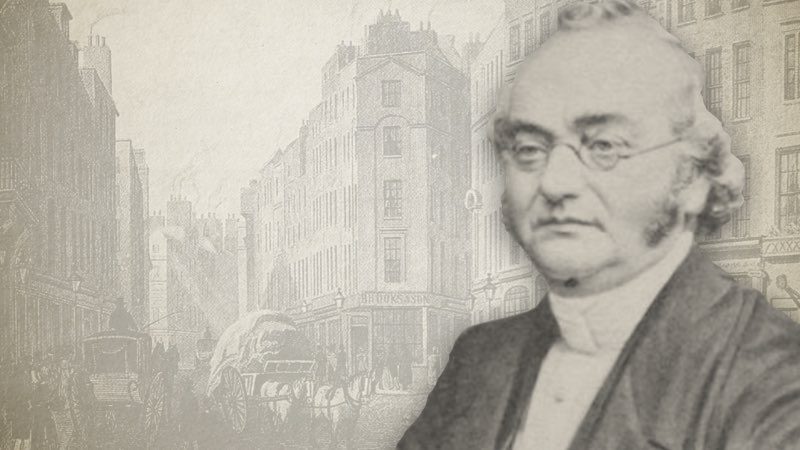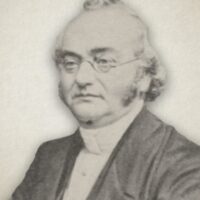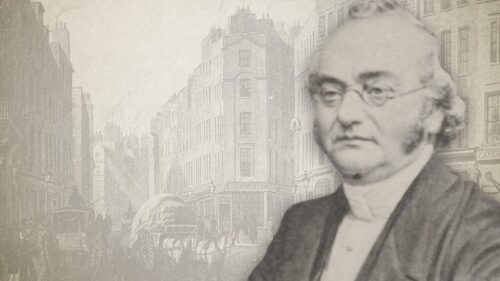
The Life And Ministry Of George Abrahams
Sketches Of The Most Popular Preachers In London:
The Rev. George Abrahams, of Regent-Street Chapel, City Road, has of late excited very considerable attention in the religious world of London. He is a converted Jew. About ten years ago, he professed to have a divine commission to preach to his Israelitish brethren, and consequently statedly addressed the few individuals of their number who felt disposed to listen to his ministrations. At that time he preached in a small room in Nelson’s Place, City Road. A short time before this, and immediately after his conversion to Christianity, he belonged to a church now meeting some where in Islington, and which was remarkable for consisting of Scotch Independents and Baptists, in pretty equal proportions. For some years after his conversion, he continued to follow his business as a dealer in old clothes; but having then married a rich lady, he relinquished his secular avocation altogether, and determined on devoting himself entirely to the work of the ministry. He caused a handsome chapel, capable of accommodating about seven hundred persons, to be built for him. It has turned out an excellent speculation in a pecuniary point of view. It is crowded to the very doors, and is regularly attended by many very respectable persons. I have no doubt, that after paying all expenses, his income from it cannot be much short of four hundred pounds a year. He is now an inveterate opponent of adult, or believers’ baptism. His preaching is purely of the experimental kind; and consists in a very great measure of the details of his own experience, and the experience of persons with whom he is acquainted. He speaks with surprising ease and fluency. I never yet heard him stutter, or saw him hesitate a moment. Both his matter and manner are colloquial. He goes through the whole of his sermon, just as if he were at his own fireside, talking to some private friend. His voice is exceedingly soft and pleasant, but has no variety of tone. There is no order or method in his sermons. He conceives that the circumstance of giving out a particular text, does not necessarily tie him down to any particular topic. I am sure he could speak from morning to night without hesitating or mistaking a word, provided his physical strength were equal to the task. He is hyper-Calvinistic in his doctrinal notions. His Jewish accent is very marked. If, for example, he were repeating the scriptural phrase—“This is the way, walk ye in it,” he would say— “Dis is de vay, valk ye in it,” He uses startling phrases at times in his anxiety to put his doctrinal views in a strong light. The last time I heard him preach, he remarked, in speaking of the necessity of repentance, “If you look anyvare for repentance, but to de Cross, you may just as reasonably look for it from de Devil.” He uses very little action. He often leans motionless over the pulpit.
In personal appearance, he is of low stature, and well formed. His face has a peculiarly marked Jewish conformation. His features are small and regular, and the expression of his countenance is pleasing. He has small black, sharp eyes; while his hair, which seems to be an object of some solicitude to him in the way of adjustment, is of a jet-black hue. His complexion is swarthy: one who knew no better would take him for a foreign Jew. His age cannot be above forty.
George Abrahams (1800-1867) was a Particular Baptist preacher. He was appointed pastor of the church meeting at Regent-Street Chapel, City Road. As a Polish Jew, he enjoyed a distinguished ministry in London, his accent alone setting him apart from his co-labourers in the gospel. He belonged to the Hight-Calvinist section of churches.




